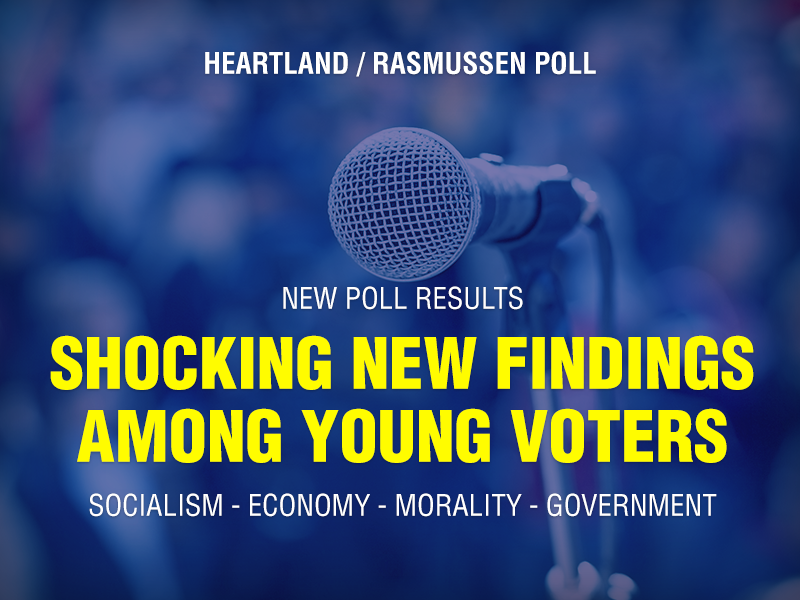Legislation in the Oklahoma House of Representatives would combat environmental, social and governance (ESG) scoring systems and ensure state pension funds are invested solely to achieve the maximum return on investment for pensioners, rather than advancing social or political causes that may likely lead to lower returns and financial underperformance.
ESG scores are essentially a risk assessment mechanism increasingly being used by investment firms and financial institutions that forces large and small companies to focus upon politically motivated, subjective goals which often run counter to their financial interests and the interests of their customers. Companies are graded on these mandated commitments to promote, for example, climate or social justice objectives. Those that score poorly are punished by divestment and reduced access to credit and capital.
To combat this, the bill states that a fiduciary “shall discharge duties with respect to a plan solely in the pecuniary interest of the participants and beneficiaries” and “for the exclusive purpose of providing pecuniary benefits to participants and their beneficiaries and defraying reasonable expenses of administering the plan.” Further, a fiduciary’s “evaluation of an investment, or evaluation or exercise of any right appurtenant to an investment, must take into account only pecuniary factors. Plan fiduciaries are not permitted to promote non-pecuniary benefits or any other non-pecuniary goals. Environmental, social, corporate governance, or other similarly oriented considerations are pecuniary factors only if they present economic risks or opportunities that qualified investment professionals would treat as material economic considerations under generally accepted investment theories.”
As Heritage Action for America notes, “using asset managers that engage and vote shares based on ESG can reduce the value of pension fund assets over the long-term. For example, [the world’s largest investment firm] Blackrock has voted against directors for failing to set emissions reduction targets or for increasing exposure to fossil fuel assets such as coal. In 2020, Blackrock voted against the directors of a utility for increasing its exposure to coal related assets, even though such exposure would no doubt have been financially beneficial. Such actions prevent companies from making money during periods when being anti-ESG is profitable. Over time, this will reduce the value of pension fund assets.”
The bill further provides that proxy voting must be directed or exercised by a representative of the fiduciary in accord with the provisions of this law. Currently, only two firms—Institutional Shareholder Services (ISS) and Glass Lewis—control 97 percent of the proxy advisory market and have stridently committed to ESG principles.
ISS and Glass Lewis are currently under scrutiny by several state attorneys general for collusion and antitrust violations.
Critics of anti-ESG legislation have charged that bills such as this distort the free market and could possibly lower a state’s credit rating. However, the true distortion is being perpetrated by those seeking to use the financial agencies as de facto governmental regulators. By allowing ESG to gain a foothold in Oklahoma, Sooner State legislators would be perpetuating this distorted marketplace, and nothing in the bill forces Oklahoma fiduciaries to use uneconomical investment options.
By clarifying the fiduciary duties of Oklahoma’s pension fund managers, and by insisting that maximizing the return on investment for clients be their only guiding principle, Sooner State legislators can help ensure the long-term fiscal health of the state’s pension systems and make sure that promises proffered to state pensioners will be kept.
The following documents provide more information about ESG.
Environmental, Social, and Governance (ESG) Scores: A Threat to Individual Liberty, Free Markets, and the U.S. Economy
https://heartland.org/wp-content/uploads/2023/04/2023-ESG-ReportvWeb-2.pdf
This policy paper by Heartland Institute research fellow Jack McPherrin provides a comprehensive overview of ESG and proposes specific policy recommendations to counteract ESG’s insidious influence.
ESG: A Simple Breakdown of its Components
https://heartland.org/wp-content/uploads/2022/12/PolicyTipSheetESG1.pdf
This Heartland Institute Policy Tip Sheet provides a brief description of each of the three categories comprising a company’s risk assessment based upon ESG metrics, using one of the most commonly used ESG frameworks developed by the International Business Council.
ESG: Financial Discrimination
https://heartland.org/wp-content/uploads/documents/PolicyTipSheetESG8src.pdf
This Heartland Institute Policy Tip Sheet discusses financial institutions’ discriminatory practices against consumers, and explains proposed solutions to the problem.
ESG: The Banking Industry
https://heartland.org/wp-content/uploads/documents/PolicyTipSheetESG7src.pdf
This Heartland Institute Policy Tip Sheet briefly summarizes how the banking industry has used its coercive market power to weaponize ESG compliance.
ESG: Central Bank Digital Currencies
https://heartland.org/wp-content/uploads/documents/PolicyTipSheetESG6.pdf
This Heartland Institute Policy Tip Sheet provides a brief summary of central bank digital currencies (CBDCs) and how they can be wielded against society to enforce ESG compliance.
ESG: Negative Effects on Food Supply and Agriculture
https://heartland.org/wp-content/uploads/documents/PolicyTipSheetESG5.pdf
This Heartland Institute Policy Tip Sheet provides a brief summary of how ESG is being weaponized against farmers, food production, and the agricultural industry as a whole.
ESG: The Effects Upon Free Markets
https://heartland.org/wp-content/uploads/documents/PolicyTipSheetESG3.pdf
This Heartland Institute Policy Tip Sheet offers a brief description of how ESG systems fundamentally alter free markets and the natural equilibrium of supply and demand.
ESG: The Role of the U.S. Securities and Exchange Commission
This Heartland Institute Policy Tip Sheet offers a brief description of the role of the U.S. Securities and Exchange Commission (SEC) in coercing companies into ESG compliance.
Nothing in this Research & Commentary is intended to influence the passage of legislation, and it does not necessarily represent the views of The Heartland Institute. For further information on this subject, visit Environment & Climate News, The Heartland Institute’s website, and PolicyBot, Heartland’s free online research database.
The Heartland Institute can send an expert to your state to testify or brief your caucus; host an event in your state; or send you further information on a topic. Please don’t hesitate to contact us if we can be of assistance! If you have any questions or comments, contact Heartland’s Government Relations department, at [email protected] or 312/377-4000





